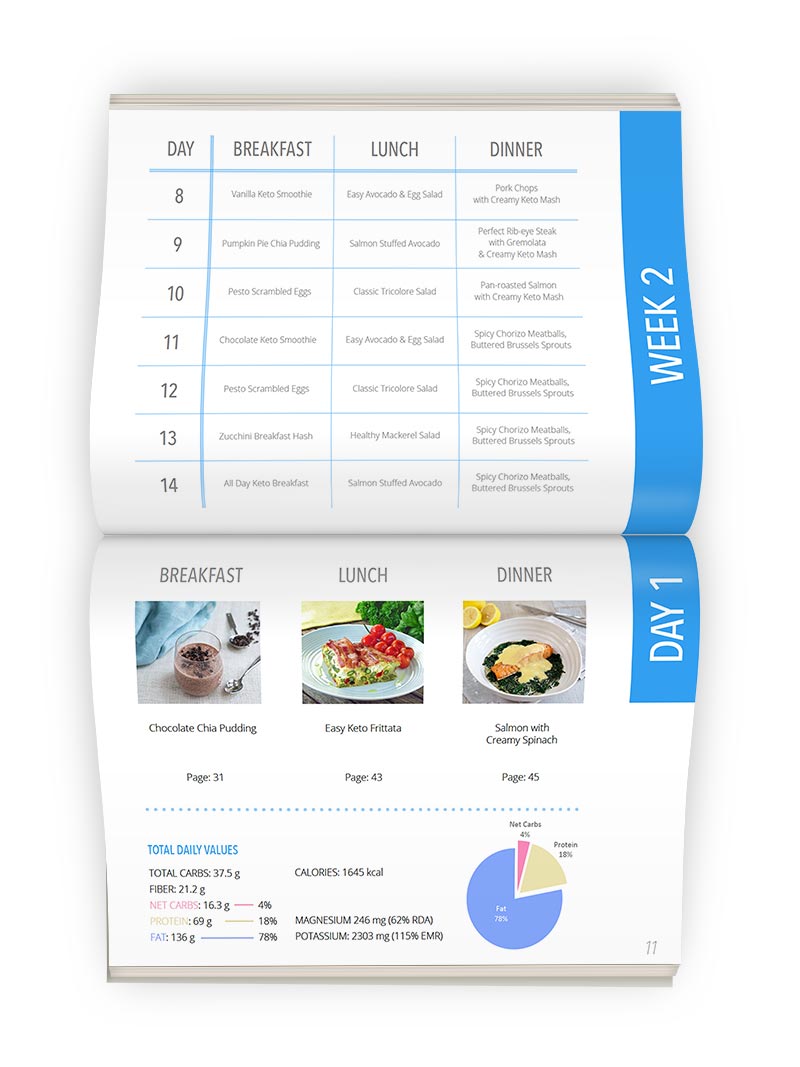What to Eat on the Keto Diet
The ketogenic diet is a high-fat, low-carbohydrate diet that helps you lose weight by forcing your body into a state of ketosis. Studies have shown that this type of eating plan can increase energy levels, promote weight loss, and decrease blood sugar levels in people with diabetes. Achieving the benefits of keto is not easy. There are some foods you should avoid, which include anything with sugar or high carbohydrates, carbs from beans or legumes, any gluten products, most dairy products except cheese and heavy cream, fatty meats like bacon, sausage, hamburgers or extra-lean ground beef. Here are some foods to eat on the keto diet so you can reap its benefits without feeling deprived.
What is the keto diet?
The keto diet is a high-fat, low-carbohydrate diet that helps you lose weight by forcing your body into a state of ketosis. Studies have shown that this type of eating plan can increase energy levels and decrease blood sugar levels in people with diabetes, while promoting weight loss.
Achieving the benefits of keto is not easy. There are some foods you should avoid, which include anything with sugar or high carbohydrates, carbs from beans or legumes, any gluten products, most dairy products except cheese and heavy cream, fatty meats like bacon and sausage, hamburgers or extra-lean ground beef.
Here are some foods to eat on the keto diet so you can reap its benefits without feeling deprived:
What foods are allowed on keto?
The ketone bodies produced by the breakdown of fats in the liver signal the brain that you're full. This helps with weight loss because you won't be hungry as often. Spices like black pepper, cayenne pepper, and red pepper flakes can also help stimulate ketosis.
You can eat most meat including beef, poultry, pork, lamb, and fish. You can also eat eggs and dairy products like cheese and heavy cream. You can eat avocados, olives, olive oil or coconut oil for healthy fats. There are some green vegetables that are allowed on keto like leafy greens (spinach), green beans (from seeds), broccoli (from seeds) or cauliflower (from seeds). Nuts like almonds or walnuts are also good to eat on keto. If you feel like experimenting with low-carb flour substitutes like coconut flour or almond flour for baked goods, go ahead! Eating cheese is encouraged on keto so don't worry about eating too much if you're having trouble staying full.
How to start the keto diet
The keto diet offers many health benefits, but it's not easy to start eating this way.
First, the keto diet restricts certain foods that you're used to eating, like breads, pasta, rice, potatoes, beans and sugar. The good news is that there are plenty of delicious alternatives to these items that are still healthy for your body. Here are some foods you can eat when starting the keto diet:
* Leafy greens : Leafy greens are a staple in the keto diet because they offer many vitamins and minerals in a low-carb form. Some great leafy green options include spinach, kale and collard greens.
* Avocado : Avocados are high in fat content, making them perfect for the keto lifestyle because it puts your body into ketosis. Other than avocado's fat content, this fruit is filled with nutrients like potassium and folate which help regulate blood pressure levels and improve cardiovascular health.
* Berries : Berries offer tons of fiber per serving without adding excess carbs or calories. Berries also contain antioxidants which can protect against cancer and heart disease. The best berries for the keto diet include raspberries, strawberries and blueberries.
* Protein shake
The challenges of being on a keto diet
One of the challenges of living on keto is getting enough protein. Protein sources include meat, seafood, eggs, and dairy. You can also get protein from nuts and seeds, legumes like black beans or lentils, and low-carb vegetables like broccoli.
Since your diet is so high in fat, you might be at risk for cardiovascular disease. However, studies suggest that ketosis reduces bad cholesterol levels in people with heart disease.
It can also help prevent type 2 diabetes by reducing insulin resistance. It's important to talk with your doctor about this diet before starting it because it may not be appropriate for everyone.
Tips for following keto successfully
If you're interested in following a keto diet, there are some important foods you'll need to eat and avoid.
In order to get the most from your ketogenic diet, follow these guidelines:
- Consume more fat
- Eat moderate amounts of protein
- Avoid carbohydrates as much as possible
- Eat low glycemic index vegetables
- Eat high quality proteins, such as grass fed beef, wild caught salmon or organic chicken breast
- Drink plenty of water
Conclusion
The ketogenic diet is a high-fat, low-carbohydrate diet that can help you lose weight and improve your health. It's restrictive, but if you follow the guidelines and eat the right foods, it should be possible to make it work for you.
In this post, we covered six foods to eat on the keto diet to promote weight loss and other health benefits. To learn more about how these six foods can help you reach your goals on the keto diet, read on!


No comments:
Post a Comment